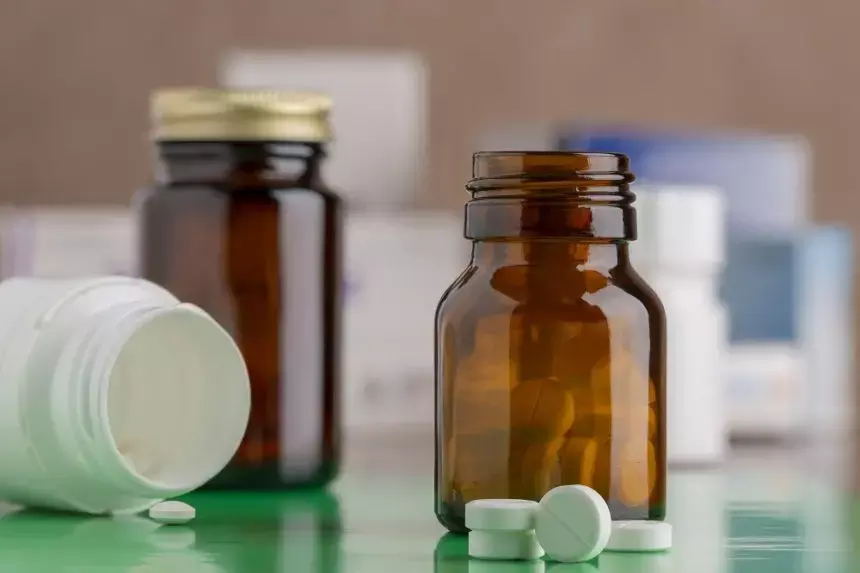- Home
- Medical news & Guidelines
- Anesthesiology
- Cardiology and CTVS
- Critical Care
- Dentistry
- Dermatology
- Diabetes and Endocrinology
- ENT
- Gastroenterology
- Medicine
- Nephrology
- Neurology
- Obstretics-Gynaecology
- Oncology
- Ophthalmology
- Orthopaedics
- Pediatrics-Neonatology
- Psychiatry
- Pulmonology
- Radiology
- Surgery
- Urology
- Laboratory Medicine
- Diet
- Nursing
- Paramedical
- Physiotherapy
- Health news
- Fact Check
- Bone Health Fact Check
- Brain Health Fact Check
- Cancer Related Fact Check
- Child Care Fact Check
- Dental and oral health fact check
- Diabetes and metabolic health fact check
- Diet and Nutrition Fact Check
- Eye and ENT Care Fact Check
- Fitness fact check
- Gut health fact check
- Heart health fact check
- Kidney health fact check
- Medical education fact check
- Men's health fact check
- Respiratory fact check
- Skin and hair care fact check
- Vaccine and Immunization fact check
- Women's health fact check
- AYUSH
- State News
- Andaman and Nicobar Islands
- Andhra Pradesh
- Arunachal Pradesh
- Assam
- Bihar
- Chandigarh
- Chattisgarh
- Dadra and Nagar Haveli
- Daman and Diu
- Delhi
- Goa
- Gujarat
- Haryana
- Himachal Pradesh
- Jammu & Kashmir
- Jharkhand
- Karnataka
- Kerala
- Ladakh
- Lakshadweep
- Madhya Pradesh
- Maharashtra
- Manipur
- Meghalaya
- Mizoram
- Nagaland
- Odisha
- Puducherry
- Punjab
- Rajasthan
- Sikkim
- Tamil Nadu
- Telangana
- Tripura
- Uttar Pradesh
- Uttrakhand
- West Bengal
- Medical Education
- Industry
Common Drugs for T2D and Obesity Do Not Increase Breast Cancer Risk: Study

Glucagon-like peptide-1 receptor agonists are the commonly used medications for type 2 diabetes and obesity. In a recent study presented virtually at ENDO 2021, the Endocrine Society's annual meeting, researchers have reported that this commonly used medication is not associated with an increased risk of breast cancer, despite previous study findings that suggested a possible link.
Obesity and type 2 diabetes mellitus (T2DM) remained major public health issues in the developed nations, and their incidence is on the rise in the developing countries, attributed mainly to a considerable shift in dietary practices. GLP-1 RAs have been shown to be effective in treating obesity and type 2 diabetes and in reducing heart disease. However, in a previous study on liraglutide, subjects treated with the active drug instead of a placebo had a higher number of breast cancers. To further evaluate these findings, Dr Giovana Fagundes Piccoli, M.D., of the Universidade Federal do Rio Grande do Sul in Brazil, and his team conducted a study to assess whether patients treated with GLP-1 RAs had a higher risk of breast cancer or benign growths in the breasts called neoplasms.
Piccoli reviewed 52 randomized controlled trials that compared GLP-1 RAs with non-GLP-1 RAs (either other diabetes or weight-loss drugs or placebos) in adults with overweight, obesity, prediabetes or diabetes. They included a total of 90,360 participants. They included studies that had a minimum follow-up period of 24 weeks and reported at least one event of breast cancer or benign breast neoplasm.
Among 48,267 subjects treated with GLP-1 RAs, the researchers noted that 130 developed breast cancer, compared to 107 of 40,755 controls.
Upon analysis, they found that the treatment with GLP-1 RAs was not associated with increased rates of breast cancer or benign or premalignant breast neoplasms, compared to placebo or other diabetes or weight-loss drugs.
For further information log on to:
Medical Dialogues Bureau consists of a team of passionate medical/scientific writers, led by doctors and healthcare researchers. Our team efforts to bring you updated and timely news about the important happenings of the medical and healthcare sector. Our editorial team can be reached at editorial@medicaldialogues.in.
Dr Kamal Kant Kohli-MBBS, DTCD- a chest specialist with more than 30 years of practice and a flair for writing clinical articles, Dr Kamal Kant Kohli joined Medical Dialogues as a Chief Editor of Medical News. Besides writing articles, as an editor, he proofreads and verifies all the medical content published on Medical Dialogues including those coming from journals, studies,medical conferences,guidelines etc. Email: drkohli@medicaldialogues.in. Contact no. 011-43720751


